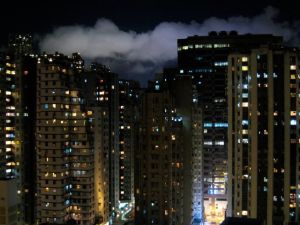I know everyone is talking about health care reform these days, and while I'm sure you can guess that I strong opinions on this, I'm going to save those for another day. Instead, I just want to offer a few observations from Hong Kong, which has both a public and a private health care system.
When Matt was in the negotiating stage for this teaching job, I was still pregnant. We asked to look at the insurance policy, wanting to understand the health care we would have here. We were told it was a very good policy, but we were shocked when we read that it didn't cover well-baby visits, vaccinations, maternity care, or any services for congenital health problems. We decided to accept the job anyway, but with the private caveat that if Finn was born with any health problems, we simply wouldn't go, since insurance wouldn't cover it.
And then we got here, and I was asked the very first week by a fellow teacher's wife if we decided to get the insurance coverage for Finn and myself. (The employee is fully paid for, we contribute for the family coverage.) I truly thought it was a silly question and said "Of course," wondering what kind of irresponsible mum this was.
And she, on the other hand, a Chinese-Brit, with Chinese frugality and the experience of the NHS, thought that
I was the irresponsible one, paying for expensive coverage I may or may not need, when the government offered more-than-adequate care for free.
What a wake up call! I knew, of course, intellectually, that other countries have other ways of providing health care. I knew that other countries offered universal coverage. But the idea of needing insurance in order to get health care is so deeply ingrained in me that when making decisions for our family, I couldn't imagine anything different.
And not until last spring did I understand that, in many instances, the public health care offered is actually better than private. The reason that insurance doesn't cover congenital health problems is that if you have any complications with your pregnancy or delivery, and if the baby is born with any problems, you are automatically transferred to the public system. That's where the best equipment is, the latest technology, and the best specialist doctors.
We were told last year that we should choose which hospital we would want to go to in the event of an emergency, as the ambulance drivers won't choose for you. And when we asked around for advice, we were told consistently that for an emergency--any kind--the public hospitals are where we would want to be.
As far as I can tell, the major difference between private and public care--besides cost, of course--is comfort. In private hospitals you pay at different levels for a shared room or a private one. The food is better. Visiting hours are longer. You may or may not get better nursing care. In public hospitals, you pay virtually nothing for a ward room, then you can pay for shared rooms or private ones.
Comfort is not an insignificant issue, of course. And I'm not in love with health care here, but it's due to cultural issues rather than quality, and all of our experiences thus far have been with the private system. We don't plan to have a baby here because many of the attitudes around birth and support for breastfeeding aren't what we want--but that's true in both public and private settings. When asking women who have given birth in the hospitals here---public or private---about their experience, a common response is "Oh, it was fine. I was able to get an epidural right away." (!)
I would love to find out the cost comparison between health care in the two systems--not the out of pocket cost, or what the insurance pays, but the cost of the health care itself. What relationship
does cost have to quality? And how do we decide what "quality" is? I guess those are questions, aren't they ...
We're about to begin our foray into the public system. Tomorrow Finn will have his 18-mo check-up and vaccines at the Anne Black Maternal and Child Health Clinic, right here in North Point. So far, getting an appointment was painless and quick (called Monday, appt. set for Wednesday.) I've heard that the developmental checks are longer and more thorough at the gov't clinics than with private doctors--I'll let you know.
update: The appt. today was fine, with a
much more thorough development check--felt like the well-baby visits we had back home. The entire visit was much more "specialized"--there are designated nurses (and rooms) for the measurements, the interview (this is the developmental part, with a nurse), the consultation (this is the physical exam by the doctor), and the vaccines (they call it The Injection Room). Of course, there is a bit of a wait in between seeing all these folks--the entire visit was 2 hours, and I estimate that we were seeing someone for 1 hour of that time, and waiting the other hour.
Contrast that with our visits to the private doctors: Probably only 45 minutes total, but only 15 minutes seeing someone, the rest waiting.
